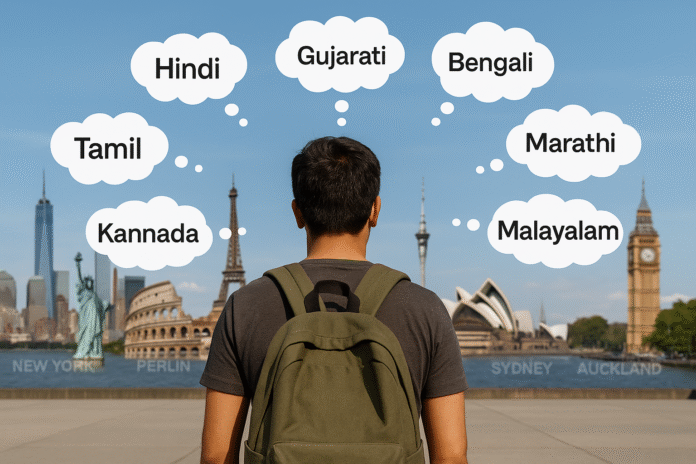Disclaimer: This is a dummy Pop-Vox article created solely for demonstration purposes. All names, quotes, facts, and data are fictional and do not represent real individuals or events.
Context: Fictional linguistics policy leader promoting multilingual education.
“Language choice fosters cultural openness and helps nations build stronger diplomatic and trade ties.”-Arjun
Context: Imaginary advocacy group leader opposing forced language policies.
“Imposing a language risks alienating communities and limiting global integration.”-Meera
e?
Interview 1 – Leela Wordsmith, 30, Virtual Reality Guide, Polyglot City
“Learning Spanish helped me get an overseas job — choice matters, and so do global connections.”-Leela
Interview 2 – Ramesh Tonguetwist, 25, Tour Coordinator, Heritage Town
Advertisement
“I’m proud of my mother tongue, but I also see the value in global languages for trade.”-Ramesh
🎥 Interview 3 – Anika Alphabeta, 22, Student, Lingua Nagar
“Being forced to learn a language I’ll never use feels pointless. Let people choose.”-Anika
Pop-Vox
Facts (Dummy Data)
Percentage of citizens supporting multilingual education: 74% (Source: Imaginary Global Language Survey 2024)
Countries with official multilingual policies: 92 (Source: Fictional International Culture Index 2023)
Increase in trade partnerships after language exchange programs: 28% (Source: Pretend Global Commerce Review 2024)
Most learned foreign languages in India: English, French, Spanish, Mandarin (Source: Fabricated Language Learning Report 2024)
AI Summary — Stakeholder Impact
Public/Consumers:Language choice empowers individuals, improves employability, and fosters openness to global opportunities. Forced learning can create resentment and reduce engagement.
Industry/Employers:Multilingual employees help companies expand into new markets, improve cross-border negotiations, and adapt products for global audiences.
Policy/Government:Balancing promotion of national languages with the encouragement of global languages can strengthen international diplomacy and trade.
Related Links
[PopVox: The Role of Language in Modern Diplomacy]
[PopVox: Education Reforms for a Global Workforce]
FAQ — Language Choice vs Imposition
Q1. How does language choice impact international relations?A1. It enables cultural exchange, trade negotiations, and global collaboration.
Q2. Is learning global languages more important than preserving native tongues?A2. Both are important — one for identity, the other for global opportunities.
Q3. Can governments encourage language learning without imposing it?A3. Yes, through incentives, scholarships, and voluntary programs.
Q4. What languages are most beneficial for global ties?A4. English, Mandarin, Spanish, Arabic, and French often rank highest.
Q5. How can citizens influence language policy?A5. By participating in public consultations, advocacy groups, and education boards.








